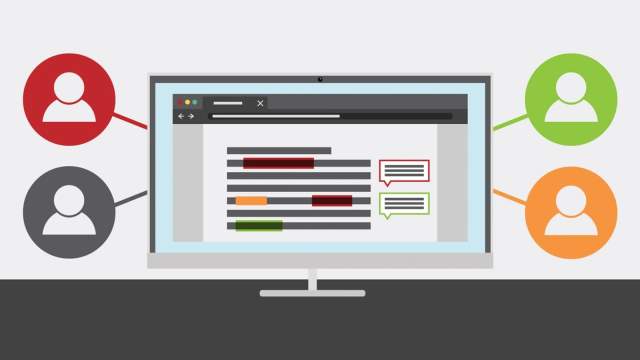Defensive Strategies for Modern Network Security
Key Takeaways
- Understanding network security is crucial for protecting digital assets.
- Key defensive strategies include firewalls, encryption, and regular audits.
- Staying updated with the latest cyber threats is crucial for robust security.
- Integrating cybersecurity practices in daily operations enhances overall protection.
Introduction to Network Security
In today’s digital world, network security services (NSS) are more critical than ever. Cyber threats are becoming increasingly sophisticated, and understanding how to protect your network is paramount for individuals and businesses. Adequate network security involves many strategies to safeguard data and prevent unauthorized access. By implementing robust security measures, you can ensure that sensitive information remains protected from ever-evolving cyber threats.
Why Network Security Matters
Grasping the importance of network security is essential for maintaining the integrity of personal and organizational information systems. In an era where data breaches frequently make headlines, the consequences of a security lapse can be devastating. Financial losses, such as fines and legal fees, compromised personal information and diminished trust, are just a few examples of the fallout from such incidents. According to a recent article on ZDNet, robust network security is no longer optional but necessary. Organizations must prioritize network security to shield themselves from the economic and reputational damage that can arise from a single breach.
Firewalls
Firewalls represent the first line of defense against cyber threats and are crucial to any network security strategy. They are a barrier that monitors incoming and outgoing traffic based on established security rules. By scrutinizing data packets, firewalls can prevent unauthorized access and block suspicious activities. Whether a hardware-based firewall protecting a physical server or a software firewall safeguarding an individual’s computer, these tools play an indispensable role in network security. Firewalls can be configured to allow or deny traffic based on predetermined safety policies, thus ensuring that only legitimate data passes through while potential threats are kept at bay.
Encryption
Another essential network security element is encryption, which renders data unintelligible to thwart unwanted access. Encryption guarantees that it remains unreadable even if data is intercepted without the correct decryption key by transforming it into a code. Sensitive information is safeguarded using this technique both in transit and at rest. Encryption, for instance, is frequently used to protect email correspondence, financial transactions, and private information kept on devices. Robust encryption methods shield private information from unwanted views, making it extremely difficult for attackers to decode intercepted data.
Regular Security Audits
Frequent security audits must be conducted to find vulnerabilities in a network. These audits offer a chance to evaluate the performance of current security measures and implement any required modifications. An organization’s information systems, methods, and procedures are carefully examined during a security audit to ensure they adhere to security requirements. Security audits are crucial for ensuring your defenses are constantly up to date, as one TechRadar article noted. Preventing breaches and enhancing overall network security is achieved by detecting and resolving vulnerabilities before they are exploited.
Maintaining Updated Security Protocols
It’s necessary to update your security procedures often to avoid cyber dangers. Because cybercriminals are always coming up with new ways to take advantage of vulnerabilities, strategies that worked a year ago might not work today. Updating your procedures and systems regularly is essential to ensuring strong network security. This entails updating outdated technology, applying software patches, and adjusting to new security trends and innovations. Companies should regularly evaluate their security policies to ensure they follow the most recent guidelines and best practices. The danger of new and developing attacks may be successfully reduced by maintaining up-to-date security practices.
Employee Training and Awareness
Human mistake is one of the simplest methods for hackers to get into a network. This is why thorough training programs are essential for staff members. The danger of breaches may be significantly decreased by providing personnel with regular training on the newest security procedures and threat awareness. Workers must receive training on spotting phishing scams, handling credentials safely, and handling possible security issues. Regular security briefings, online courses, and workshops can all be used for training. Establishing a security-aware culture inside a company guarantees that all staff members are watchful and proactive in safeguarding confidential data. Network security improves when staff members have the skills and information to identify and address security risks. Also, considering human capital management diploma may help you manage employees by developing their skills and value.
Integration of Cybersecurity in Daily Operations
Integrating cybersecurity into an organization’s daily operations fortifies overall protection. Regular data backups, and controlled access to sensitive information are all practices that enhance security. Making these habits part of the daily routine ensures that security measures are consistently applied and maintained. Regular data backups ensure critical information can be restored during a breach or system failure. Controlled access restricts unauthorized users from accessing sensitive data, reducing the risk of insider threats. Organizations can effectively safeguard their digital assets by embedding cybersecurity practices into everyday activities.
Conclusion
To summarize, adequate network security requires routine maintenance and cutting-edge tactics. Encryption, firewall implementation, security audits, and continuous staff training are critical to safeguarding your digital assets. By comprehending and implementing these ideas, you can protect your network and avoid cyber threats. Proactive network security is the most robust line of defense against possible breaches and data loss in a world where digital attacks are becoming more common.







